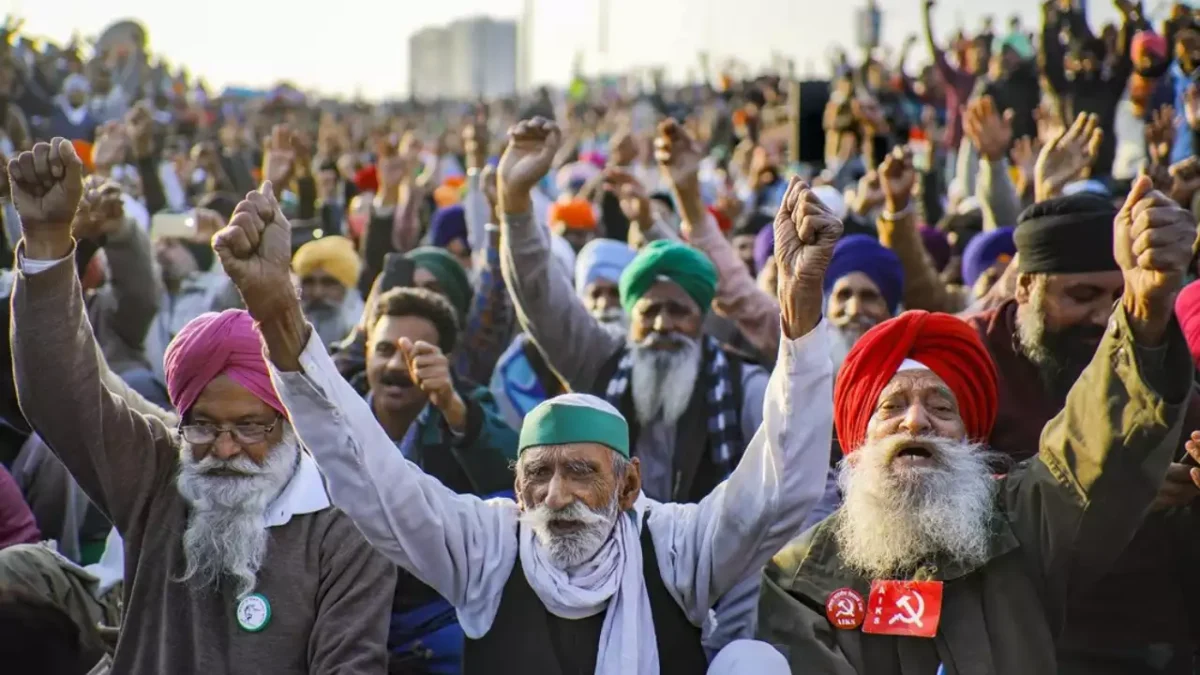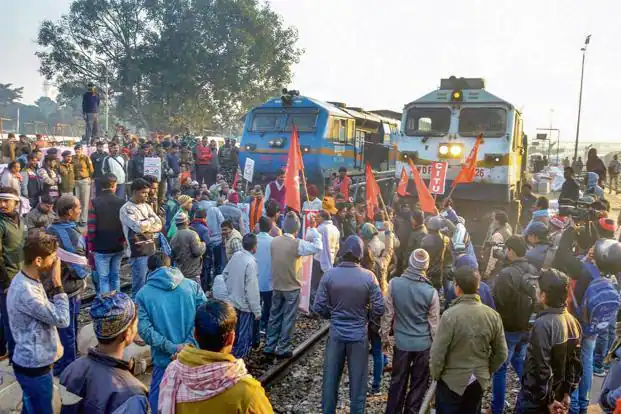Table of Contents
The Farmers’ Protest 2.0 contributed to the headlines yet again by announcing a nationwide strike. The Kisan Mazdoor Morcha and Samyukat Kisna collectively declared Bharat bandh on 16th February. The move aims to strongly delineate their demands for the implementation of Minimum Support Price laws and other agricultural reforms.
Farmer unions have instigated all the like minded organizations to join hands and present their demands in front of the center to further drive home the point that they have been trying to make since the first farmers protest in 2020. The stoppage of the normal flow of traffic has been forewarned by the said organizations as the farmers declare their plans for a full day agitation, commencing from 6 AM and going on till 4 PM.

The call for the same originated with the farmers having marched up to Ambala, Haryana about 200 kilometers short of Delhi. Attempts to contain the protestors were made by the Haryana Police by using the tear gas.
Demand of the Farmers
The farmers reiterate their demand for MSP laws, pension schemes, Agniveer schemes and the unemployment pervading their lives. The specified requests entail the provision of pensions for farmers, the adoption of OPS for employees, the reversal of amendments to labor laws, and the guarantee of a minimum monthly wage of Rs 26,000 for workers.
The SKM has sent a letter to Prime Minister Narendra Modi, urging for a Minimum Support Price for crops aligned with the Swaminathan formula of C2 50 (ensuring 50 percent coverage of input costs), a legal guarantee of procurement, debt forgiveness, and a freeze on electricity tariff hikes and the installation of smart meters.
Furthermore, they have called for the provision of free 300 units of power for agricultural, domestic, and commercial use, comprehensive crop insurance, and an increase in pension to ₹10,000 per month, among other demands.
According to reports, transportation services, agricultural activities, Mahatma Gandhi National Rural Employment Guarantee Act (MNREGA) rural works, private offices, village shops, and rural industrial and service sector institutions are anticipated to be shut down due to the nationwide strike organized by farmer unions on Friday (Feb 16).

Nevertheless, essential services such as ambulance operations, newspaper distribution, medical shops, and students heading for board exams will continue unaffected by the strike.
Protesters are organizing street plays, songs, and poetry to underscore their demands and shed light on the challenges faced by farmers and workers. Government employees and trade unions have also declared their participation, calling for the reinstatement of the old pension scheme and the establishment of an 8th pay scale commission.
Who all will Participate?
Government employees and trade unions have declared their involvement, calling for the abolition of the old pension scheme and the establishment of an 8th pay scale commission. Concurrently, Haryana Sanjha Morcha roadway employees have also joined the cause, advocating for alterations to hit-and-run case provisions, restoration of the pension scheme, and salary increases.
In parallel, disruptions occurred on the Delhi-Amritsar railway route as farmers staged protests by obstructing tracks in Punjab in response to the Haryana Police’s actions against ‘Delhi Chalo’ demonstrators. Farmers also conducted sit-ins at various toll plazas, compelling authorities to waive toll fees for commuters.
Bhartiya Kisan Union (Ekta Ugrahan) and BKU Dakunda (Dhaner) had called for a four-hour ‘rail roko’ protest at multiple locations in Punjab. Beginning around 12 pm, farmers initiated their demonstration by occupying railway tracks at numerous points. These protests are anticipated to persist until 4 pm.

Conclusion
In conclusion, the farmers’ protest 2.0 has once again captured national attention with the announcement of a nationwide strike, signaling a resolute stance on their demands for the implementation of Minimum Support Price laws and comprehensive agricultural reforms. The coordinated efforts of various farmer unions and allied organizations underscore their unwavering commitment to pressing issues such as pension schemes, labor laws, and minimum wage guarantees. Despite disruptions to transportation and economic activities, essential services remain operational, ensuring minimal disruption to daily life. As the protests continue to gain momentum and support, the government faces mounting pressure to address the grievances of the farming community and enact meaningful reforms to alleviate their concerns.


